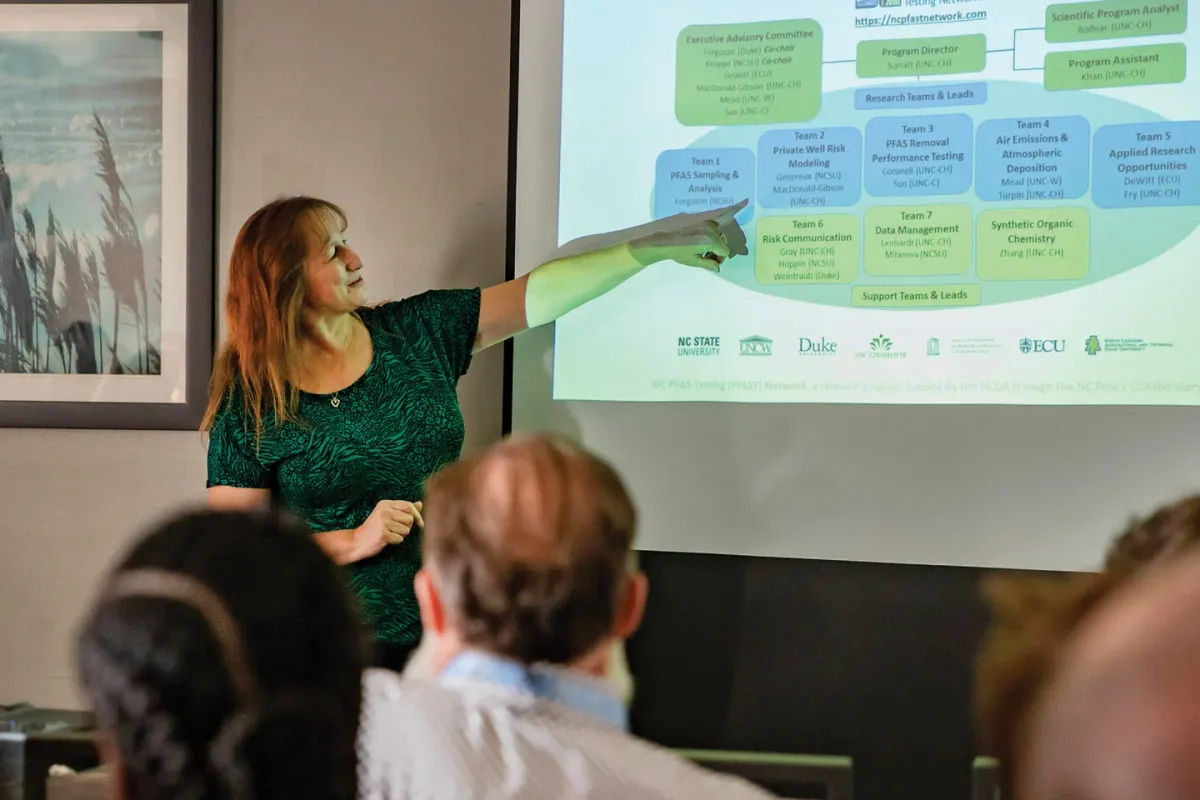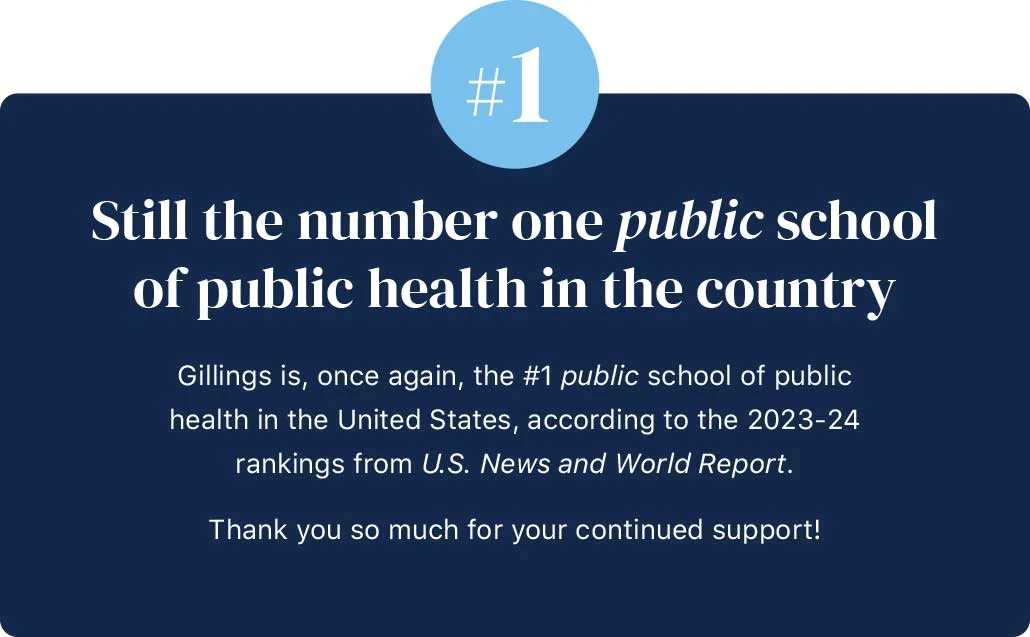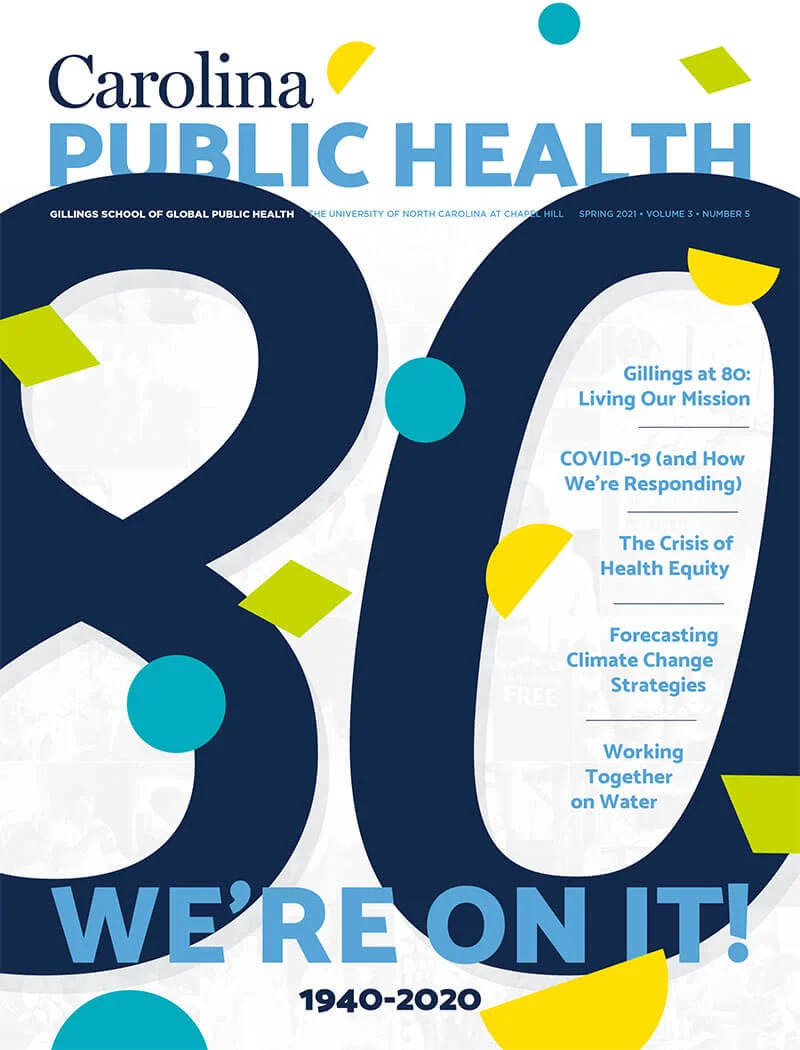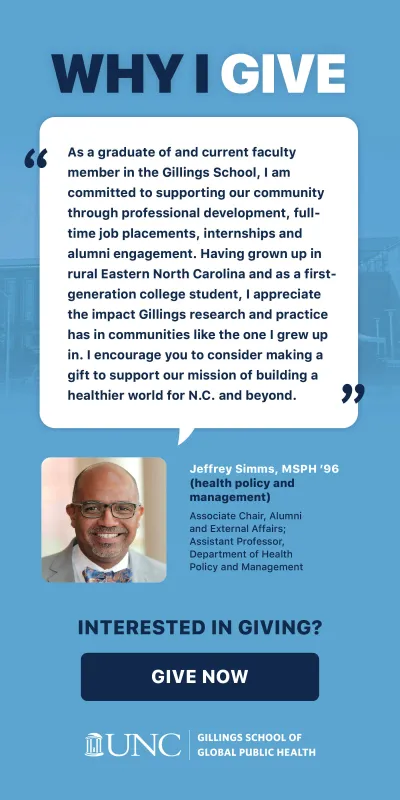Since the 1940s, industrial chemicals called “per- and polyfluoroalkyl substances,” (PFAS) have been used to make nonstick cookware, food packaging, cleaning products, water repellent, firefighting foam and other products.
These chemicals aren’t federally regulated. But they don’t break down easily in the body or the environment – and they’ve been linked to a number of health problems.
Gillings researchers have been working with scientists across North Carolina on a major research collaboration that will help state agencies address PFAS, which has been found in state waters. The NC PFAS Testing Network, which includes more than 20 researchers at universities across the state, is collecting and analyzing water samples from municipal drinking water supplies and some private wells, testing atmospheric samples and other sources, such as landfills, to determine PFAS levels.
Members of the Network also are conducting field studies and laboratory experiments to assess potential health effects of exposure in humans, and testing the effectiveness of PFAS removal and remediation methods from commercially available filtration technologies to new materials being developed for removal of PFAS compounds.
This work, which is coordinated through the NC Policy Collaboratory at UNC and funded in 2018 by a $5 million appropriation from the N.C. General Assembly, will help state regulatory agencies create additional guidance and regulations for the well-being of residents. Network researchers have published six research papers so far, with a final report completed in April 2021.
“Our final research report will communicate what we’ve learned from our findings, and from the communities we’ve interacted with, in order to make helpful recommendations in ways we can move the PFAS discussions forward – especially in terms of eliminating or mitigating the amount of PFAS people are exposed to,” said Jason Surratt, PhD, a professor of environmental sciences and engineering at Gillings who is the PFAS Testing Network’s program director.
Wanda Bodnar, PhD, research assistant professor in environmental sciences and engineering, is the Network’s scientific analyst and, along with Surratt, is part of the Network’s project management team. Gillings researchers who are leading research projects as part of the PFAS Testing Network include:
- Orlando Coronell, PhD, associate professor of environmental sciences and engineering, co-leads a team testing the performance of technologies in removing PFAS.
- Jackie MacDonald Gibson, PhD, former Gillings professor of environmental sciences and engineering, co-leads a team developing predictive models to predict which private water wells are at greatest risk of PFAS contamination.
- Barbara Turpin, PhD, professor and chair of environmental sciences and engineering, co-leads a team examining air emissions to better understand how air particles may impact water on and under the ground.
- Rebecca Fry, PhD, the Carol Remmer Angle Distinguished Professor in Children’s Environmental Health and associate chair for strategic initiatives in environmental sciences and engineering, co-leads a team assessing the impact of PFAS on public health.

Wanda Bodnar, PhD, assistant professor of environmental sciences and engineering, discusses the PFAS project in Wilmington, North Carolina, as part of the Tar Heel Bus Tour. Bodnar is the PFAS Testing Network’s Scientific Program Analyst.
PFAS is just one of several Collaboratory projects involving the Gillings School. Since the Collaboratory was created in 2016, it has provided more than $10 million in research funds to Gillings faculty.
“For as long as we’ve been in existence, the Collaboratory has had a productive relationship with the talented academics at the nation’s No. 1 public school of public health,” said NC Policy Collaboratory Executive Director Jeffrey D. Warren, PhD. “It should be no surprise that as soon as the General Assembly directed the Collaboratory to lead its statewide PFAS investigation, we immediately turned to Gillings experts, including Drs. Surratt and Bodnar, to create a project management team to lead the overall effort. Through our long history of Gillings partnerships, we have been able to engage some of the State’s foremost public health and environmental researchers to provide relevant and critical data to undergird major public policy discussions and decisions.”




